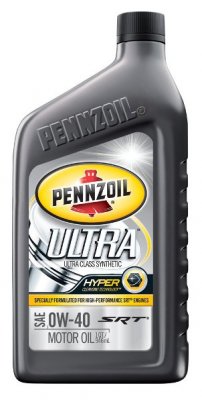Transcribed from the screen caps above in case the links are broken or the image hosting site goes away (emphasis added is mine):
From Dick Winkles:
Ok, here’s my “opinion” based on my 22+ years of engine testing and development with Chrysler and the Viper V-10. I’m no chemical PhD but I was fortunate enough to work with several through the years who were with Chrysler, ExxonMobil, Shell and Lubrizol. At Chrysler we tested quite a variety of oils from different suppliers over the years running just basic performance tests and various wear and durability test. This subject could easily take up an entire chapter in the History Book of Viper (if any such thing were to actually exist!) so I’ll cut to the chase and tell you what I run in my own Viper and why. Remember, my opinion based on my experiences over the years of engine testing and development. First a few general comments/observations.
1) Stick with the major manufacturers/suppliers. I know company XYZ claims their oil makes gobs more power and reduces friction and wear better than anything else ever. Show me the data – and I’m not talking about a few runs comparing oils on a chassis Dyno! You simply cannot find real results running on a Superflow or Dynojet. You must test in a precisely controlled and very repeatable environment – like the $1M test cells the major manufacturers have, a big investment for “boutique” oil producers.
Sorry, apparently ran out of space after I had finished my speech!
So, to be brief, when we changed to the Pennzoil (which is made by Shell) from Mobil 1 it was a purchasing directive, not from engineering. We were part of DaimlerChrysler at that time and there were financial and political reasons for the switch. In addition, we could claim a fuel economy improvement with the new 0W-40 oil. We had our marching orders so we tested the new 0W-40 and compared the results to the 5W-40 we had been using and found negligible improvement in output, a very slight improvement in fuel consumption and increased wear on pistons, rings, cylinder bores and bearing surfaces. The Shell team was great to work with and some changes to the oils formulation and additive package were made based on our tests. However, the 0W-40 never provided as good of wear protection as the higher viscosity base oil blends be it Mobil 1 or Shell. Our testing was generally done in Warner conditions due to the nature of the car – who drives a Viper at -10F or even 30F for that matter and that’s probably where the zero based oils would shine. Vipers also tend to sit for extended periods more than “normal” everyday cars.
Therefore, I usually recommend the Mobil 1 “High Mileage” oils since their additive package includes higher amount of detergent to keep sludging under control and added seal conditioners to help prevent leaks due to dried out or shrunken seals and gaskets. The higher base weight of 10 will shear down less over time and provide a higher film strength and oil pressure. I really like the 10W-40 H.M. oil for those reasons. If you are a racer, the Mobil 1 15W-50 or the Pennzoil 5W-60 race oils are my picks. I think Shell also has a High Mileage product as well that I’m sure would also be an excellent choice.


